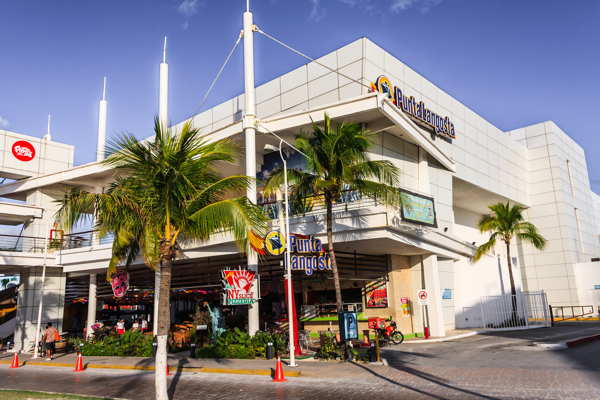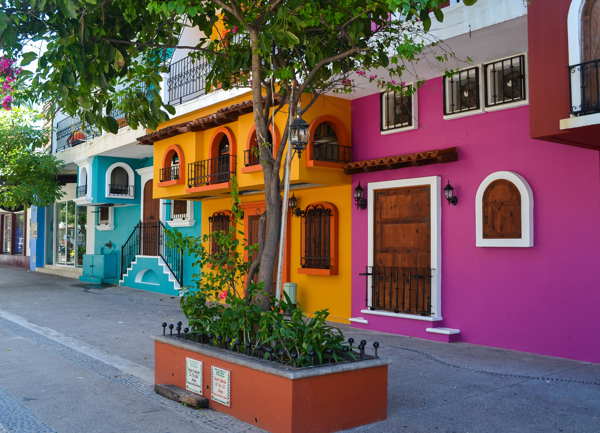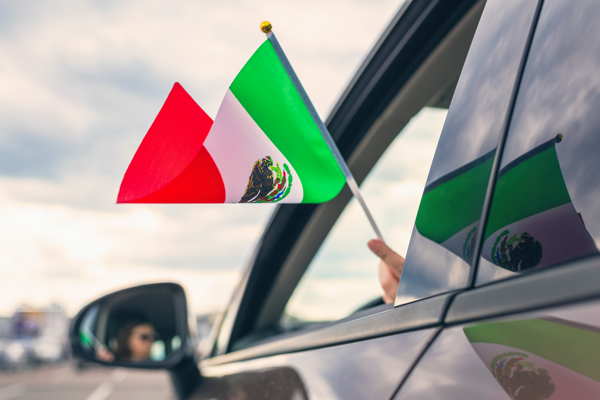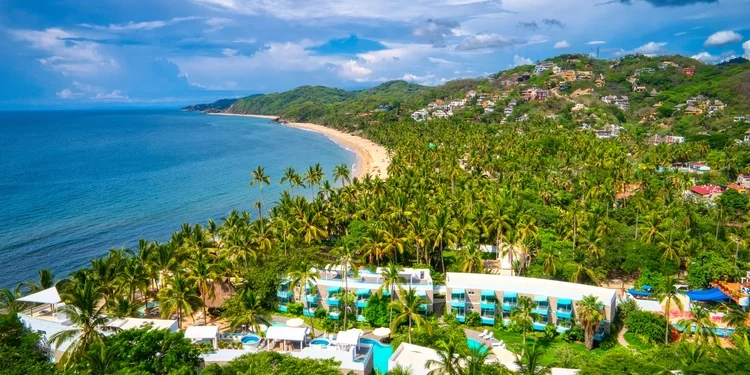Over the past four decades, Americans have voted Mexico the world’s #1 place to enjoy expat life in the way that really counts…
They’ve packed up and moved there.
This country is home to more American expats and retirees than any other, at least 1 million and as many as 2 million, depending on the survey.
This shouldn’t surprise anyone. It’s easier for an American to get to Mexico than to any other country other than Canada.
Why do Americans choose to go south of the Rio Grande rather than to the Great White North?
The weather!
Americans looking to start a new life in a new country primarily seek three things: warm weather, beautiful beaches, and a low cost of living. Mexico competes handily in all three categories.
This big, diverse country offers dozens of great living options, from colorful and historic colonial cities like San Miguel de Allende, Cuernavaca, Guanajuato, and Oaxaca to beach towns like Playa del Carmen and Tulum (on the Caribbean coast) and Puerto Vallarta and Mazatlán (on the Pacific).
Start Your New Life Today, Overseas
While the living is not as cheap as it was in the 1970s when Americans began migrating here in volume, it’s still a global bargain.
Here’s Seven Reasons Why A Move To Mexico Makes Sense…

1. The Country Is Familiar
From its administrative set-up (the Mexican government is a stable democracy, with executive, legislative, and judicial branches functioning in a similar way to those in the United States) to its big-footprint shopping.
If you’re itching for an adventure in a foreign land that’s not too foreign, Mexico could be the experience you seek.

2. It’s Easy To Go Back And Forth, Making It A Top Choice For Part-Time Living
Drive down as often as you like without worrying about plane fare or any of the associated hassle of plane travel.

Start Your New Life Today, Overseas
3. English Is Widely Spoken
All the North American attention from both expats and tourists means that many Mexicans, especially in the service industry, speak English. As a result, this can make things like navigating the residency process at the immigration office and managing the real estate purchase process with your attorney much easier.

4. Undervalued Property Markets
While some property markets, especially in the second-home markets most popular among Americans, have seen appreciation over the couple years, others remain undervalued, handing you a nice buyer’s advantage.
In fact, right now, we have a unique window of opportunity, to get in early on Mexico’s next big vacation goldmine, before values skyrocket. Just minutes from the beach it features jungle trails for hiking, botanical gardens, a day spa, a pool, and a practice course…
It’s ideal for investors looking for rental income plus capital appreciation… Small studio units start at just $109k with developer financing available.
5. Easy And Fast Immigration
Automatic six-month tourist stays and easy and fast immigration make it possible to come and go and spend as much time in the country as you’d like.
You can maintain a second home here (a place you rent out when you’re not using it yourself, say) without having to bother with the expense of obtaining formal resident status.

6. Consider Retirement In Mexico, It Is Hassle-Free
Moving to Mexico can be as hassle-free as an international move gets.
Nothing’s as easy as loading up a truck and driving south. Your entire moving budget could be gas and tolls.

Start Your New Life Today, Overseas
7. You Can Go Back To The States To Use Medicare
If you’re considering this move as a retiree, nearing or over the age of 65, the fact you can return easily to the United States to use Medicare can be the most compelling advantage.
Mexico offers excellent health care, but Medicare won’t pay for it—with limited exceptions, Medicare doesn’t cross any border. However, if you retire in Mexico, you’d be only a drive or quick flight away from accessing your benefits.
This means keeping and continuing to pay for Medicare coverage in addition to any other health insurance you might opt for. This can be a good strategy for a Medicare-eligible retiree moving to any foreign country, a safety net.
Until next time,

Kathleen Peddicord
Founding Publisher, Overseas Opportunity Letter










